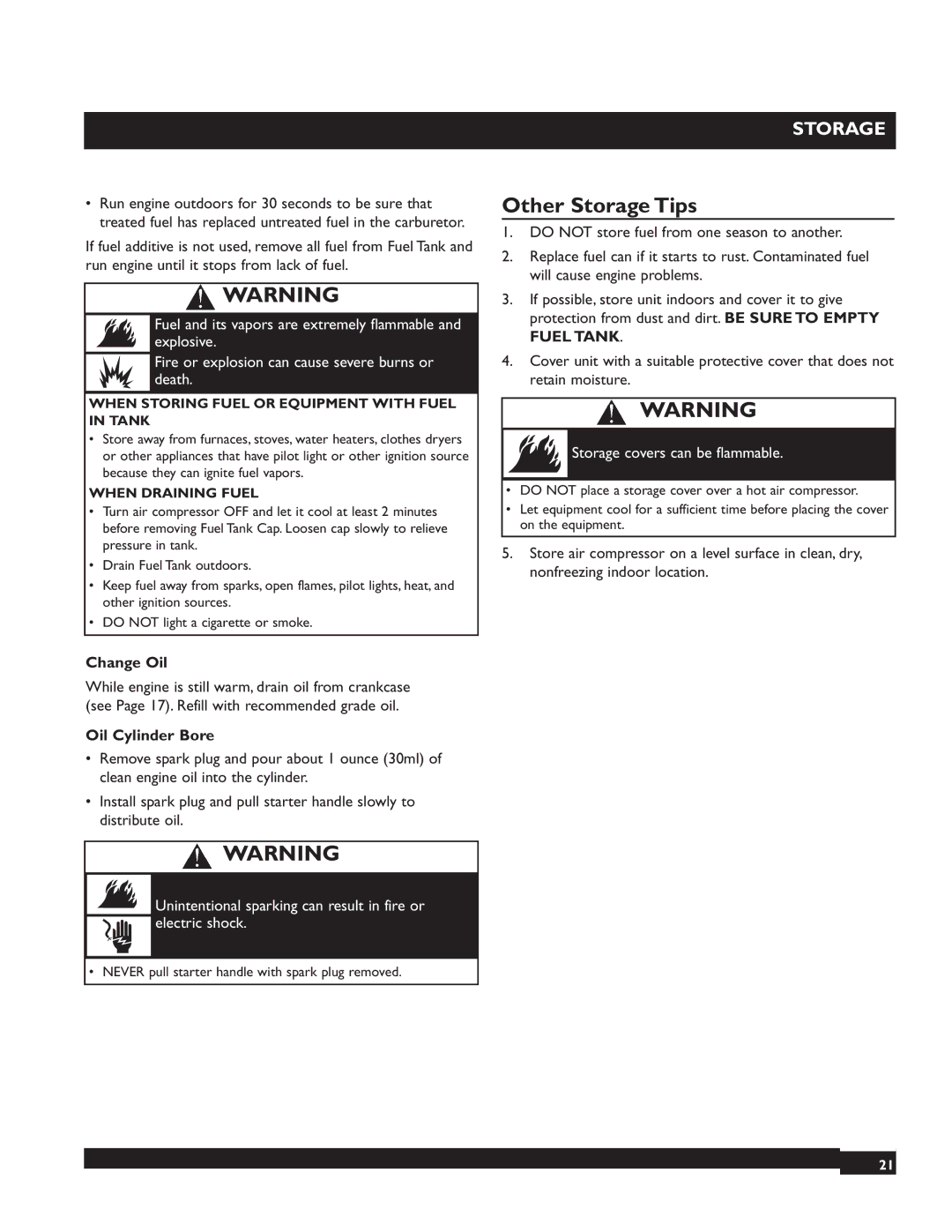
•Run engine outdoors for 30 seconds to be sure that treated fuel has replaced untreated fuel in the carburetor.
If fuel additive is not used, remove all fuel from Fuel Tank and run engine until it stops from lack of fuel.
![]() WARNING
WARNING
Fuel and its vapors are extremely flammable and explosive.
Fire or explosion can cause severe burns or death.
WHEN STORING FUEL OR EQUIPMENT WITH FUEL IN TANK
•Store away from furnaces, stoves, water heaters, clothes dryers or other appliances that have pilot light or other ignition source because they can ignite fuel vapors.
WHEN DRAINING FUEL
•Turn air compressor OFF and let it cool at least 2 minutes before removing Fuel Tank Cap. Loosen cap slowly to relieve pressure in tank.
•Drain Fuel Tank outdoors.
•Keep fuel away from sparks, open flames, pilot lights, heat, and other ignition sources.
•DO NOT light a cigarette or smoke.
Change Oil
While engine is still warm, drain oil from crankcase (see Page 17). Refill with recommended grade oil.
Oil Cylinder Bore
•Remove spark plug and pour about 1 ounce (30ml) of clean engine oil into the cylinder.
•Install spark plug and pull starter handle slowly to distribute oil.
![]() WARNING
WARNING
Unintentional sparking can result in fire or electric shock.
• NEVER pull starter handle with spark plug removed.
STORAGE
Other Storage Tips
1.DO NOT store fuel from one season to another.
2.Replace fuel can if it starts to rust. Contaminated fuel will cause engine problems.
3.If possible, store unit indoors and cover it to give protection from dust and dirt. BE SURE TO EMPTY FUEL TANK.
4.Cover unit with a suitable protective cover that does not retain moisture.
WARNING
Storage covers can be flammable.
•DO NOT place a storage cover over a hot air compressor.
•Let equipment cool for a sufficient time before placing the cover on the equipment.
5.Store air compressor on a level surface in clean, dry, nonfreezing indoor location.
21
